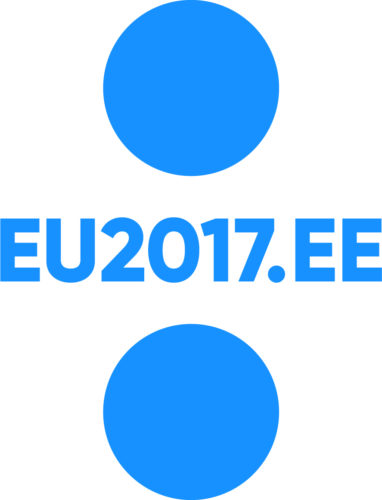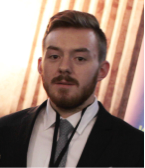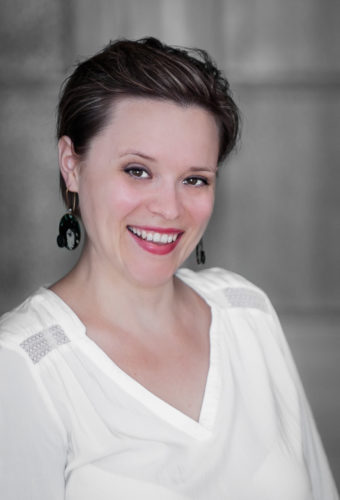Foorum kodanikuruumist Euroopas (2017)
16. novembril 2017 korraldasime Tallinnas foorumi kodanikuühiskonnast Euroopas: “Kust tuleb vabadus ja kuhu kaob kodanikuruum?”
Kodanikuruumi puudutav on Euroopa aruteludes oluline teema ja seepärast ei saanud Eesti EL Nõukogu eesistumise raames jätta tähelepanute, mida tuleb teha ja mida vabakond saab teha selleks, et kodanikuõigusi- ja vabadusi üle Euroopa hoida:
- kuidas hoida kodanikuruumi?
- kuidas suurendada kõiki hõlmavat ühiskondlikku dialoogi ning astuda vastu populismile, vihakõnele ja polariseerumisele?
- kuidas võimendada kodanikualgatuse potentsiaali?
Foorumil võtsime ette viimased kodanikuruumi kirjeldavad analüüsid ja hinnangud, jagasime kogemusi edukamatest ja mõjusamatest valvekoera-algatustest ning vabakonna algatatud populismi, vihakõne ja polariseerumist ennetavatest või siis vähendavatest tegevustest. Arutelud tõid teemakäsitlused loodetavasti ka Eesti konteksti ning alati on kasulik teistes riikides sarnast tööd tegelevatelt organisatsioonidelt õppida.
Teisel päeval (17.11) rääkisime Euroopa kodanikuühiskonna katusorganisatsioonide ning rahvusvaheliste võrgustike esindajatega läbi, kuidas ideed ja ettepanekud poliitikaaruteludesse viia ning kodanikuruumiga tegelemist eesistumiste kaupa jätkata.
Mida rohkem on vabaühenduste aruteludes teadmist ning käsitlusi demokraatia ja kodanikuühiskonna toimimisest, seda enam toetab see dialoogi Euroopa institutsioonide ning üle-Euroopaliste kodanikuühiskonna võrgustike vahel. Eesistujamaad võiksid tulevikus võtta eestkõneleja rolli ja koostöö korraldamisel tulevad kindlasti abiks ka äbiräägitud tuleviku-tegevuskavad.
Kuidas meil läks, kes mida ütles ning mida kokku lepiti?
- Foorumi täpsem kava (koos ettekannetega) siin ning kõnelejate tutvustus siin.
- Olulisemad kokkulepped II päeva arutelult. (17.11.2017)
- Mida arvasid kodanikuruumist Eestis Herman Kelomees (Väitlusselts), Sigrid Solnik (Arengukoostöö Ümarlaud) ja Kari Käsper (Inimõiguste Keskus), EMSLi üldkoosolek (26.05.2017)
- Kodanikuruumist Euroopas rääkisime ka Arvamusfestivalil (12.08.2017)
Foorum oli osa Eesti Euroopa Liidu Nõukogu eesistumise sündmuste programmist ning selle korraldamist toetas Riigikantselei koostöös Kodanikuühiskonna Sihtkapitaliga 17 849 euroga.


FORUM ON STATE OF CIVIL SOCIETY AND CIVIC SPACE IN EUROPE
The state of civil society in Europe and the struggling civic space is in the focus of the gathering. We aim at involving the best of the knowledge, insights of trends, experiences from real watchdog activities and solutions used so far for responding to populism, polarisation and repressions on civic action across the Europe. Discussions analyze European trends, but compare these also with the Estonian context; practical workshops provide an opportunity to share best practices from different European countries as well as understand the role organised civil society has when protecting values and practices of democracy.
When: November 16
Where: Erinevate Tubade Klubi. Tallinn, Telliskivi 60a
10.00 Registration and coffee
10.30 Opening words by Mr. Eiki Nestor, President of the Parliament of Estonia
10.50 – 11.45 What is the state of civil society in Europe? Recent assessments, facts and conclusions.
- Ms. Waltraud Heller, Fundamental Rights Agency (FRA)
- Ms. Eszter Hartay, European Centre for Not-for-Profit Law (ECNL)
11.45 – 12.405 Discussion: how can civil society address the threats?
Representatives of European civil society networks and institutions argument on how civil society can protect its space. What can be done by each organisation, what is the role of networks.
- Civil Society Europe
- Open Government Partnership
- European Economic and Social Committee
12.45 – 13.45 Lunch
13.45 – 15.15 Won’t stand without action!
We have an honor to introduce outstanding initiatives and activists in civil society who have not just observed social trends, but have taken action. Three parallel sessions with moderated discussions provide an opportunity to learn from each other and discuss resources, strengths and methods of civil society.
I Countering populism
Post-truth era, populism, leaders with radical views and messages. How can civil society oppose the trend and build constructive dialogue in governance and social relations?
II Protecting the freedom of association
Right to engage in free speech or to participate in associations is closely dependent on the environment for cooperating in communities and society at large. What can civil society do if restrictions set by the government start to harm civil society?
- Ms. Dora Papp, Krétakör Foundation
- Mr. Urmo Kübar, Civil Society Adviser to the President of Estonia
III Mobilising people
Civil society is about dialogue, collaboration and joint action. How can we mobilise people to address concerns?
- Ms. Marta Lempart, Polish Women Strike
- Ms. Kadri Taperson, MTÜ Loomus
15.15-15.30 Coffee
15.30 – 16.00 Final word: role of civil society in protecting democratic values and civic space
SPEAKERS AT THE FORUM
MARTA LEMPART, WOMEN’S RIGHTS’ ACTIVIST AND LEADER OF THE POLISH WOMEN’S STRIKE

Marta is a women’s rights and democracy activist. She started and has been the leader of the national support committee of the Polish Women’s Strike, a coalition of women that on 3 October 2016 – known as Black Monday – organized and led the “black protests” in over 150 cities in Poland that stopped Polish parliament from introducing a total abortion. Polish protests were the inspiration to form the International Women’s Strike coalition that organized women’s protests in 60 countries worldwide on 8 March 2017. She is one of the founders and a member of the Prodemocratic Coalition, a movement formed after national protests for judicial independence, consisting of members of civic organizations and opposition parties. Her main aim is mainstreaming women’s rights as unconditional, core value in modern, democratic society; not something to be “discussed later”. She has a master’s degree in law and legislation work experience. Her earlier activism and professional career included working for rights for persons with disabilities (she co-authored Polish Sign Language Bill and other bills adjusting Polish system to apply the Persons’ With Disabilities Convention in 2011). Since 2012 she runs a small construction company (family business) and lives in Wrocław – southeast Poland with her partner Natalia and two dogs Bajka and Fraszka.
LENKA GALETOVÁ, DEMAGOG

A project manager and an analyst of Slovak fact-check project Demagog.SK helping citizens to find out which politician is telling the truth. After spending a few years with fact-checking of politics she started to cooperate with national newspapers and NGOs experts in Slovakia in fighting against disinformation and propaganda, organizing the lectures for high school students and teachers. She holds a Master degree in International Relations from Masaryk University, Czech Republic.
JIRI UHLIR, DEMAGOG

Jiri is a 24-years old Czech factchecker, a member of Demagog.cz. He is among five people who leads Demagog.cz factchecking team. Jiri has been with Demagog since 2014, he specialises in domestic political issues and is partly interested in european affairs. Jiri is currently completing Masters Degree in a field of Political Science. He took part in an Erasmus programme, studied in The Netherlands and Belgium.
WALTRAUD HELLER, FUNDAMENTAL RIGHTS AGENCY (FRA), PROGRAMME MANAGER, CIVIL SOCIETY COOPERATION

Waltraud Heller is responsible for FRA’s cooperation with civil society organisations, within the framework of the Agency’s“Fundamental Rights Platform” (FRP). The Agency is the EU’s independent expert body on human rights. Waltraud Heller has worked for FRA for over 10 years, initially as communications expert and spokesperson, and since three years using her skills and knowledge on participatory engagement for working with civil society. She previously worked, among others, for the European Commission, the European Trade Union Confederation, and a development cooperation NGO.
IONUT SIBIAN, CIVIL SOCIETY DEVELOPMENT FOUNDATION (CSDF), ROMANIA. EUROPEAN ECONOMIC AND SOCIAL COMMITTEE
Ionut serves a a director of CSDF, his previous experience include President of the Romanian Federation of Development NGOs (FOND), Board member of the German Marshall Fund programme – Black Sea Trust and member of various Boards of Romanian and European organisations. Currently, he serves as member of the Orange Foundation Board. As a member of the EESC, he was the rapporteur on topics such: civil society, development cooperation, enlargement, neighbourhood policy, Western Balkans, and funding instruments for civil society. In April 2013 he was elected President of the Western Balkan Follow Up Committee of EESC. In 2012 he established the Civic Innovation Fund within CSDF, a grant making programme targeting grass root NGOs from small communities, to engage in civic and community actions. He completed his MA in International Relation at the Centre for Euro-Atlantic Studies, University of Bucharest, and a Master’s Program on South East European Studies, In 2009 Ionut Sibian was Marshall Memorial Fellow, German Marshall Fund of the US, Washington DC.
PETER VARGA, OPEN GOVERNMENT PARTNERSHIP, REGIONAL CIVIL SOCIETY COORDINATOR FOR EUROPE

Peter supports civil society organisations across the continent in using the OGP platform more effectively to push for open government reforms and further their advocacy goals. Previously, he worked with Transparency International, supporting national chapters across the Nordic, Baltic and Central European regions, as well as devising the movement’s global internal communications policy. Earlier, developed social enterprises and consulted on non-profit sustainability in emerging markets across Central Europe and Latin America, also piloting the world’s first LGBT venture philanthropy fund. He also gained private sector experience working for a global marketing agency. Peter was Fulbright Visiting Practitioner at Stanford University in 2011-2012, holds an MA in International Relations and European Studies from Central European University, and a BA in Political Science from Yale University.
DÓRA PAPP, KRÉTAKÖR FOUNDATION
Dóra Papp is the managing director of Krétakör Foundation and has been working as a cultural manager since 2013. She has been organizing educational programs, performances and festivals for the Eötvös Loránd University between 2008 and 2011, for the Peter Eötvös Contemporary Music Foundation between 2013 and 2016, and then for Krétakör Foundation since 2016. Krétakör is a cultural organization based in Budapest, Hungary. Over the last 23 years it has been organising theater productions, festivals, campaigns; also founded a media platform and received the prominent prize of the European Cultural Fund, the Princess Margriet Award (PMA) for its innovative cultural activities and education program in 2016.
FRANZ NEUNTEUFL

Franz Neunteufl is an agriculturalist by education who worked many years as a team leader and consultant in the field of Austrian development cooperation. From 2003 to 2011 he held the position of Executive Director of Médecins sans frontières (MSF) in Austria; in 2006 he also became President of Interest Group of Public Benefit Organizations – IGO. Since April 2011, he has been directing IGO’s activities, leading a small team of three staff members. In 2015, he started to build a new alliance of Austrian NGO umbrella organizations of different sub-sectors, aiming at improving the collaboration between them and strengthening third sector representation in Austria.





